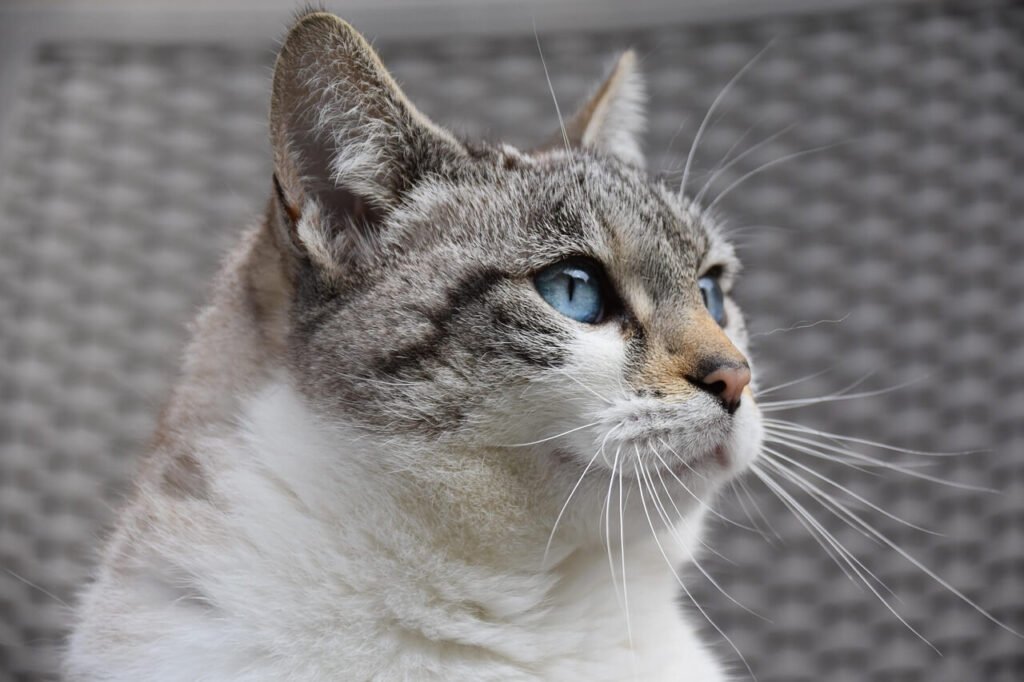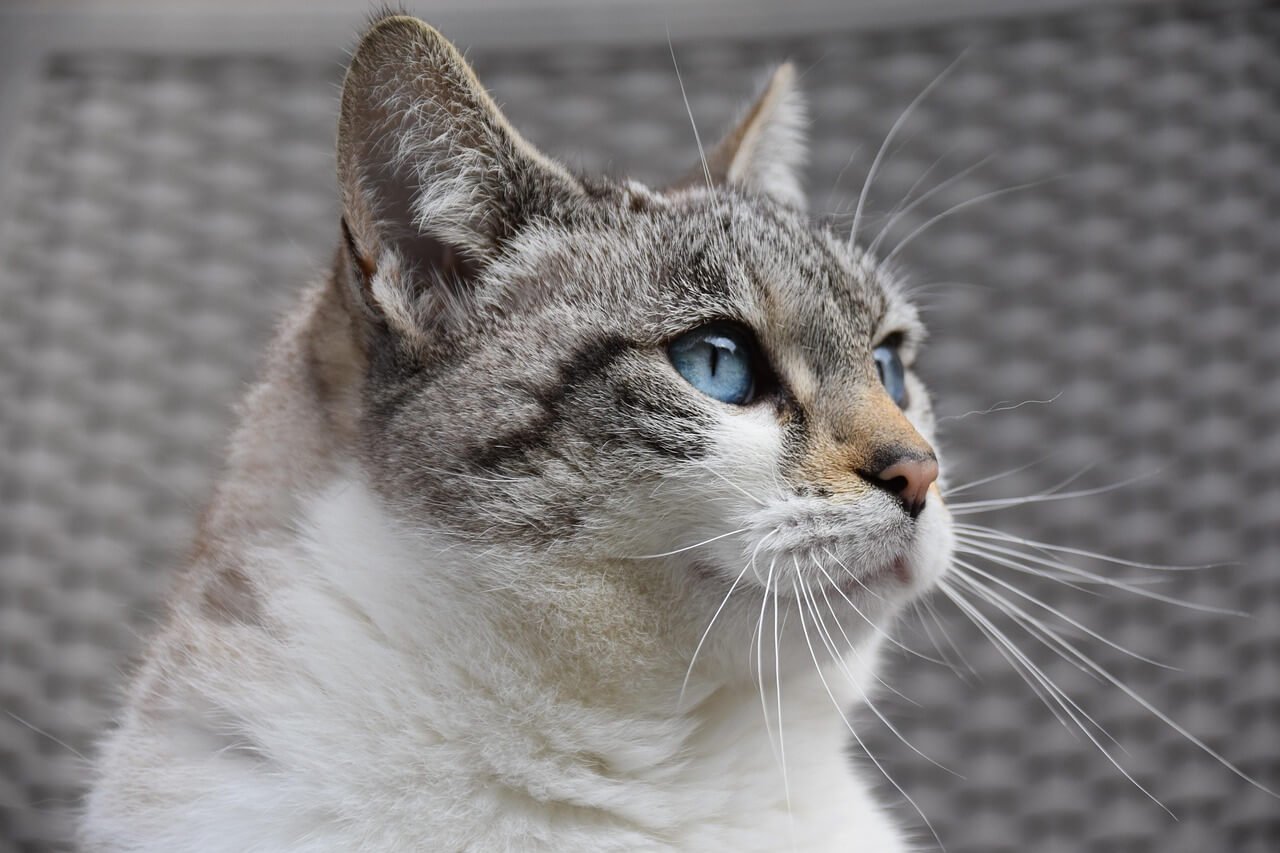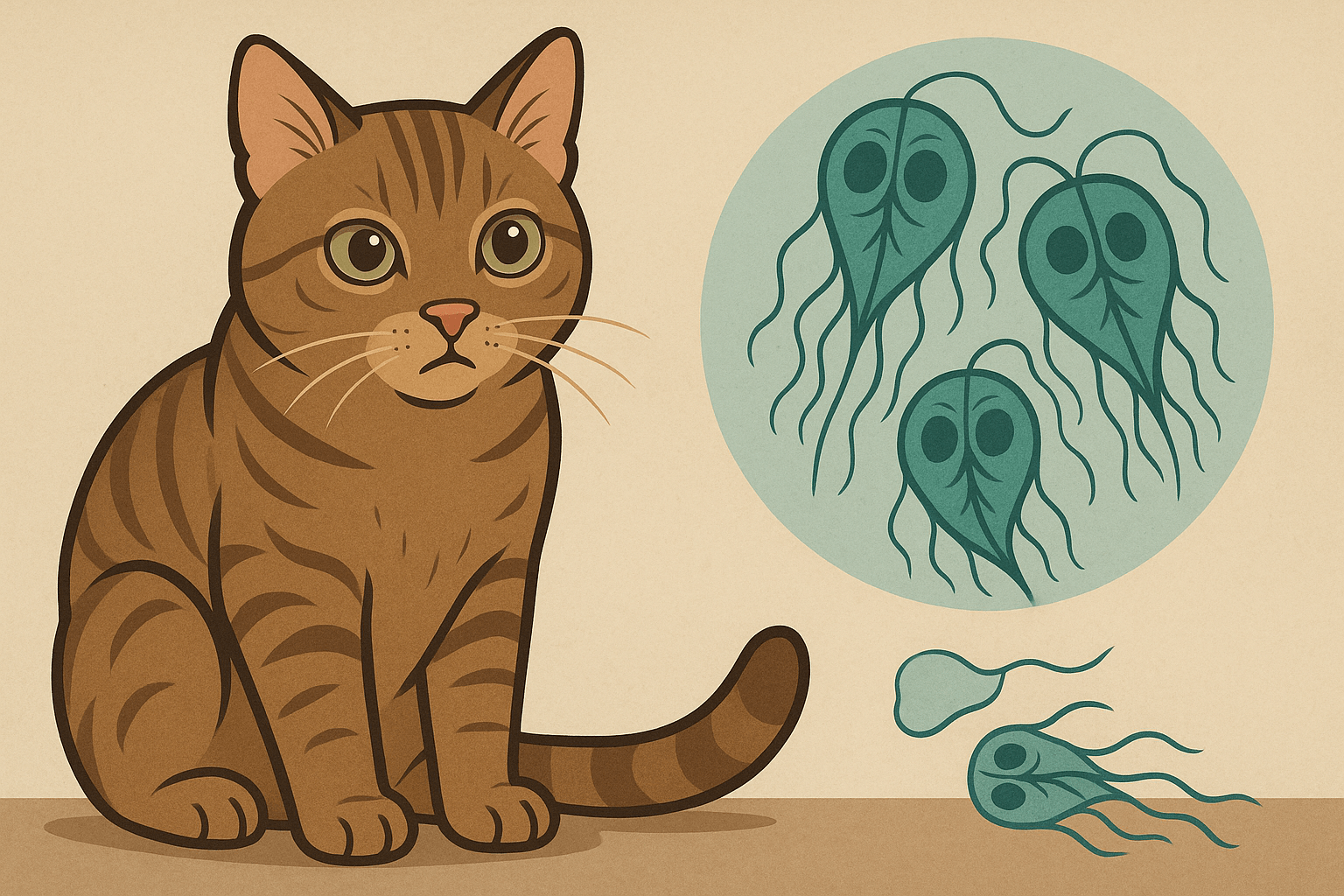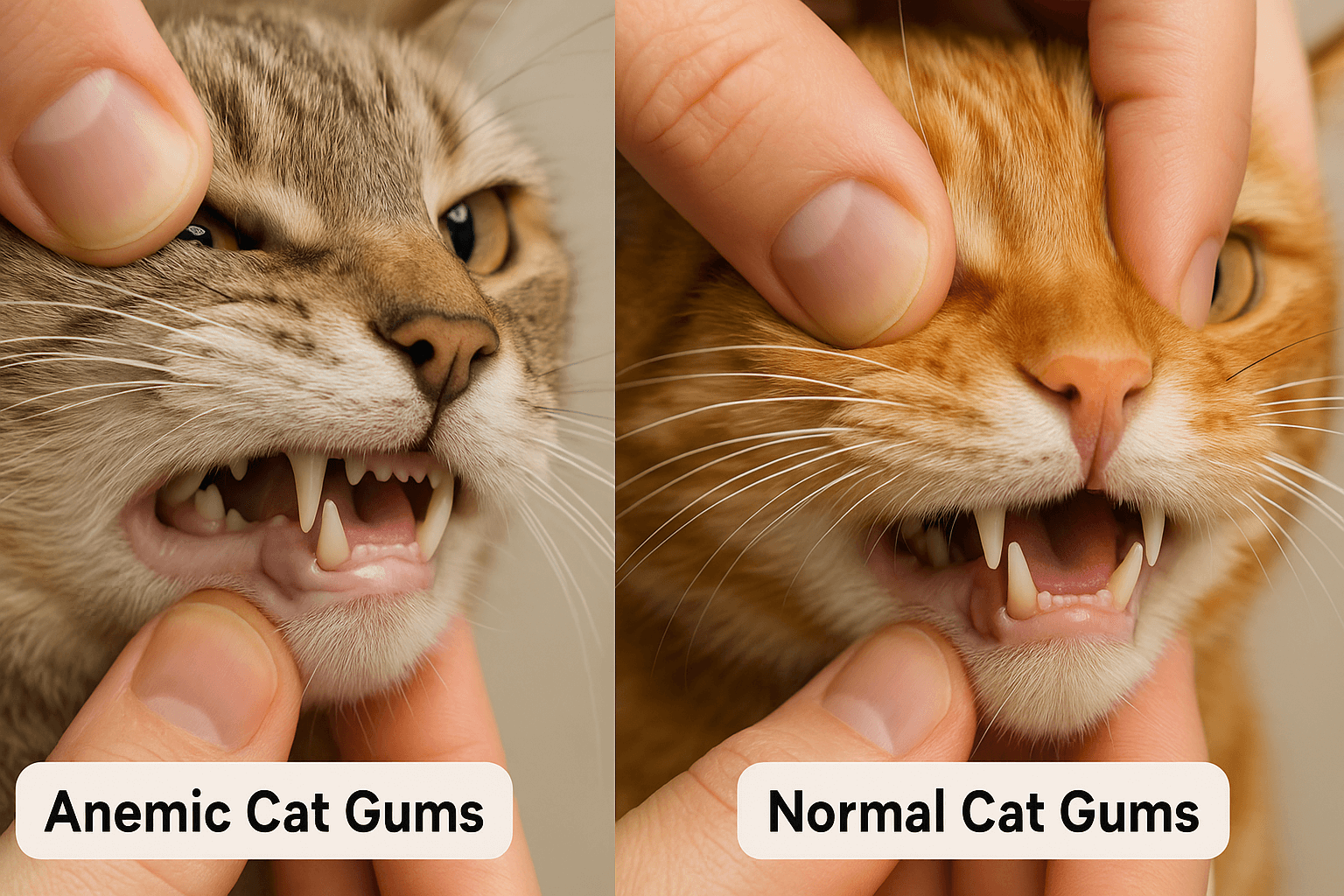Cat Asthma Attack at Night: What You Need to Know
Cat asthma is a condition that can be alarming for pet owners, especially when an asthma attack occurs at night. These episodes can leave your feline friend struggling to breathe and may cause significant distress for both you and your cat. Understanding the triggers, symptoms, and management strategies for nighttime asthma attacks is crucial for ensuring your cat’s comfort and safety. In this blog post, we’ll explore the causes of cat asthma, how to recognize an attack, and what steps you can take to prevent or manage these episodes. With the right knowledge and preparation, you can help your cat breathe easier and enjoy a better quality of life.
Causes of Cat Asthma Attacks at Night
Nighttime asthma attacks in cats can be triggered by a variety of factors, many of which are unique to their environment or physiology. Here are some common causes:
Allergens in the Home
Dust mites, mold spores, or pollen trapped indoors can irritate your cat’s airways and trigger an asthma attack.Cooler Air Temperatures
The drop in temperature at night can cause airway constriction, making it harder for asthmatic cats to breathe.Increased Relaxation During Sleep
Cats may experience breathing difficulties during sleep due to relaxed throat muscles or shallow breathing patterns.Stress or Anxiety
Changes in routine or nighttime noises can cause stress, exacerbating asthma symptoms.Household Irritants
Smoke, scented candles, or cleaning products used earlier in the day can linger in the air and worsen asthma at night.
Understanding these triggers can help you take proactive steps to reduce the likelihood of an asthma attack occurring during the night. A safe and allergen-free environment is key to managing this condition effectively.
Symptoms of a Cat Asthma Attack at Night
Recognizing the signs of an asthma attack is essential for providing timely care. If your cat experiences an episode at night, here are the symptoms to watch for:
Wheezing or Coughing
A persistent cough or wheezing sound is one of the most common indicators of an asthma attack.Rapid Breathing
Your cat may breathe faster than usual, even when resting, as they struggle to get enough oxygen.Open-Mouth Breathing
Cats typically breathe through their noses, so open-mouth breathing is a red flag during an asthma attack.Lethargy or Weakness
Difficulty breathing can leave your cat feeling exhausted or unable to move around normally.Blue Gums or Tongue
A bluish tint to the gums or tongue indicates low oxygen levels and requires immediate attention.
If you notice any of these symptoms, it’s important to stay calm and act quickly to help your cat. Monitoring their condition closely will allow you to respond appropriately and seek veterinary care if needed.
Check this guide 👉Why Is My Cat Breathing Fast While Resting? Best 7 Tips!
Check this guide 👉Why Does My Cat Breathe Loud? Best 7 Health Tips!

Symptoms of a Cat Asthma Attack | Immediate Actions to Take |
|---|---|
Wheezing or coughing | Stay calm and monitor your cat’s breathing |
Rapid breathing | Move your cat to a well-ventilated area |
Open-mouth breathing | Avoid using scented products or irritants |
Lethargy or weakness | Keep your cat comfortable and hydrated |
Blue gums or tongue | Seek emergency veterinary care immediately |
How to Prevent Cat Asthma Attacks at Night
Preventing nighttime asthma attacks involves creating a safe and supportive environment for your cat. Here are some practical tips to minimize the risk:
Reduce Allergens in the Home
Use air purifiers and regularly clean bedding to remove dust, dander, and other potential irritants.Maintain Consistent Temperature
Keep your home at a stable, comfortable temperature to avoid triggering airway constriction.Avoid Strong Scents
Eliminate scented candles, air fresheners, and harsh cleaning products that could irritate your cat’s lungs.Provide a Stress-Free Environment
Minimize noise and disruptions at night to ensure your cat feels calm and secure.Administer Prescribed Medications
If your vet has prescribed medications like bronchodilators or corticosteroids, ensure they’re given as directed.
By taking these preventive measures, you can significantly reduce the chances of your cat experiencing an asthma attack at night. Prevention is always better than dealing with an emergency situation.
Emergency Steps to Take During a Nighttime Asthma Attack
If your cat suffers an asthma attack at night, acting quickly can make all the difference. Here are the steps you should take to help stabilize your cat:
Stay Calm and Reassure Your Cat
Speak softly and gently stroke your cat to help them feel safe and reduce anxiety.Move to Fresh Air
Take your cat to a well-ventilated area away from potential irritants like smoke or strong odors.Position Them Upright
Gently sit your cat upright to help expand their chest and improve airflow.Monitor Their Breathing
Watch for signs of improvement or worsening, such as changes in breathing rate or color of gums.Contact Your Vet Immediately
If the attack doesn’t resolve quickly or your cat shows severe symptoms, call your veterinarian or an emergency clinic right away.
Quick action and clear thinking can save your cat’s life during an asthma attack. Always keep your vet’s contact information handy for emergencies.
Common Misconceptions About Cat Asthma
There are several misconceptions about cat asthma that can lead to confusion or improper care. Clearing up these myths is essential for providing the best support for your feline friend. Here are some common misunderstandings and the truth behind them:
Myth: Cat asthma is rare and not serious.
In reality, cat asthma is more common than many pet owners realize, and severe attacks can be life-threatening if not treated promptly.Myth: Cats outgrow asthma over time.
Asthma is a chronic condition that requires lifelong management; it doesn’t simply disappear on its own.Myth: Asthma medications are optional if symptoms seem mild.
Even mild symptoms can escalate quickly, so following your vet’s treatment plan is crucial for long-term health.Myth: Indoor cats can’t develop asthma.
Indoor cats are still exposed to allergens like dust, mold, and household chemicals, which can trigger asthma.Myth: Asthma attacks only happen during the day.
Nighttime attacks are common due to environmental and physiological factors, making vigilance essential around the clock.
By understanding these facts, you can take the necessary steps to manage your cat’s asthma effectively and avoid potential pitfalls.
Fun Facts About Feline Respiratory Health
Cats have unique respiratory systems that play a vital role in their overall health. Here are some fun and fascinating facts about feline breathing and respiratory conditions like asthma:
Cats Are Obligate Nose Breathers
Unlike humans, cats primarily breathe through their noses, making open-mouth breathing a significant red flag for respiratory distress.Purring Can Impact Breathing Patterns
The vibrations from purring may help relax airways, but they can also mask subtle signs of respiratory issues.Asthma Affects Cats of All Ages
While more common in middle-aged and older cats, asthma can develop at any stage of life.Environmental Control Is Key
Simple changes, like using hypoallergenic bedding or HEPA filters, can drastically improve a cat’s respiratory health.Cats Hide Symptoms Well
Felines are masters at masking discomfort, so early signs of asthma may go unnoticed until an attack occurs.
These fun facts highlight the complexity of feline respiratory health and underscore the importance of attentive care. Understanding these nuances can help you spot problems early and act proactively.
Tips for Creating a Cat-Friendly Sleep Environment
Ensuring your cat has a safe and comfortable sleep environment is especially important for managing nighttime asthma attacks. Here are some tips to create a space that promotes easy breathing and relaxation:
Use Hypoallergenic Bedding
Choose washable, hypoallergenic materials for your cat’s bed to minimize exposure to dust mites and allergens.Keep the Room Cool and Humid
Maintain a stable temperature and use a humidifier to prevent dry air from irritating your cat’s airways.Limit Bedroom Clutter
Reduce dust accumulation by keeping the sleeping area free of unnecessary items like rugs, curtains, or piles of clothes.Avoid Scented Products
Skip scented candles, plug-in air fresheners, or perfumed laundry detergents that could irritate your cat’s lungs.Provide Elevated Sleeping Spaces
Cats often prefer elevated spots for sleeping, which can help them feel safer and reduce stress-related asthma triggers.
By optimizing your cat’s sleeping environment, you can reduce the risk of nighttime asthma attacks and ensure they rest comfortably. A little effort goes a long way in supporting their respiratory health.
Frequently Asked Questions About Cat Asthma Attacks at Night
Why does my cat have asthma attacks at night?
Cooler temperatures, allergens in the home, or relaxed breathing patterns during sleep can trigger nighttime asthma attacks.
Can cat asthma be cured?
While there’s no cure, asthma can be managed effectively with medications and environmental adjustments.
What should I do if my cat has blue gums during an attack?
This is a medical emergency—seek immediate veterinary care, as it indicates low oxygen levels.
Are certain cats more prone to asthma?
Cats with allergies, obesity, or exposure to irritants are at higher risk of developing asthma.
How can I tell if my cat is having an asthma attack or just coughing?
Asthma attacks often involve wheezing, rapid breathing, and open-mouth breathing, whereas regular coughing is usually brief and less severe.
Supporting Your Cat Through Asthma Challenges
Managing cat asthma, especially nighttime attacks, requires vigilance, patience, and a proactive approach. By understanding the causes, recognizing the symptoms, and taking preventive measures, you can help your cat live a happier, healthier life. Remember, your role as a pet owner is invaluable in ensuring your feline companion feels safe and supported. Whether it’s creating a cleaner home environment, administering medications, or seeking emergency care, every effort counts. With love, care, and the right strategies, you can navigate the challenges of cat asthma and give your furry friend the best possible quality of life. After all, their health and happiness are worth every step of the journey.
Giardia in Cats: Best 7 Expert Tips! Discover expert advice on identifying, treating, and preventing giardia in cats to ensure your feline stays happy and healthy.
Cat Hyperventilating: Best 7 Expert Tips! Discover signs, causes, and solutions for cat hyperventilation. Learn how to calm your cat and when to seek veterinary care for their breathing issues.
Anemic Cat Gums vs Normal: Best 7 Expert Tips! Learn to spot signs of anemia in cats, understand gum health, and ensure your feline stays happy and healthy with expert advice.
Himalayan Cat Size: Best 7 Expert Tips! Discover expert advice on Himalayan cat size, growth factors, care tips, and how to ensure your feline stays healthy and happy.





